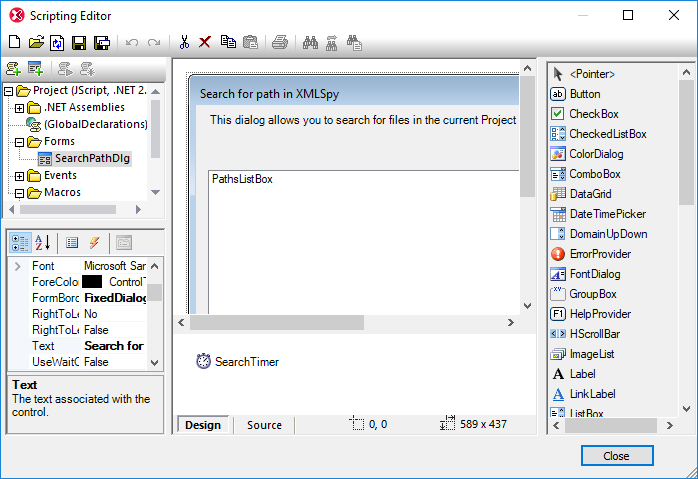

Support for additional databases - XMLSpy and all database-enabled MissionKit and server software products now support the latest version of the following databases:.Support for JSON Schema draft-06 and draft-07 in XMLSpy.It’s also possible to generate a JSON Schema compatible with the new drafts based on a JSON instance or XSD.

XMLSpy 2019r3 supports these new drafts when editing and validating JSON Schema and JSON instance documents. Support for JSON Schema draft-06 and draft-07 - Demand for support for the newest JSON Schema standard drafts has grown rapidly among developers who want to take advantage of the optimizations introduced in the latest versions.Split-screen editing in XMLSpy lets developers take advantage of today’s larger monitors in order to see more of the current document at once as well as view, edit, and move content between sections. This is especially helpful for larger documents on which it’s helpful to see multiple portions of the document at the same time. Split Text View - XMLSpy 2019r3 introduces a split text view, a new option to split the editing window into two parts horizontally or vertically to view and edit different parts of your document at once.To access namespace information with XPath 2.0 mechanisms, use the in-scope-prefixes(), namespace-uri() and namespace-uri-for-prefix() functions.Released: Updates in 2019 Release 3 Features Use of the namespace axis is, however, supported. The namespace axis is deprecated in XPath 2.0.

If the collation option is not specified, the default Unicode-codepoint collation is used.Įn_AS, en_AU, en_BB, en_BE, en_BM, en_BW, en_BZ, en_CA, en_GB, en_GU, en_HK, en_IE, en_IN, en_JM, en_MH, en_MP, en_MT, en_MU, en_NA, en_NZ, en_PH, en_PK, en_SG, en_TT, en_UM, en_US, en_VI, en_ZA, en_ZWĮs_419, es_AR, es_BO, es_CL, es_CO, es_CR, es_DO, es_EC, es_ES, es_GQ, es_GT, es_HN, es_MX, es_NI, es_PA, es_PE, es_PR, es_PY, es_SV, es_US, es_UY, es_VEįr_BE, fr_BF, fr_BI, fr_BJ, fr_BL, fr_CA, fr_CD, fr_CF, fr_CG, fr_CH, fr_CI, fr_CM, fr_DJ, fr_FR, fr_GA, fr_GN, fr_GP, fr_GQ, fr_KM, fr_LU, fr_MC, fr_MF, fr_MG, fr_ML, fr_MQ, fr_NE, fr_RE, fr_RW, fr_SN, fr_TD, fr_TG Any string comparisons, including for the max and min functions, will be made according to the specified collation. Other supported collations are the ICU collations listed below to use one of these, supply its URI as given in the table below. The engine uses the Unicode Collation Algorithm. The default collation is the Unicode codepoint collation, which compares strings on the basis of their Unicode codepoint. The implicit timezone is taken from the system clock, and its value can be checked with the implicit-timezone() function. When the timezone is not explicitly given in such a value, the implicit timezone is used. When two date, time, or dateTime values need to be compared, the timezones of the values being compared need to be known. For division operations that produce a result of type xs:decimal, the precision is 19 digits after the decimal point with no rounding. The precision refers to the number of digits in the number, and a minimum of 18 digits is required by the specification.


 0 kommentar(er)
0 kommentar(er)
